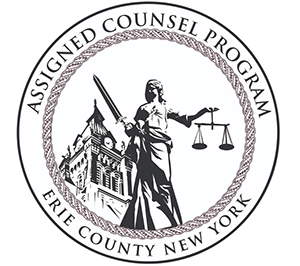A claim of child neglect refers to a situation where parents and/or other adults responsible for the care of a child under the age of 18 are accused of failing to provide the minimum amount of care for that child.
How is Neglect Defined?
A neglected child is a child under the age of eighteen whose physical, mental, or emotional condition has been impaired or is in danger of becoming impaired as a result of the failure of his parent or other person legally responsible for his care to exercise a minimum degree of care.
What is Neglect?
Neglect cases may be brought on a number of grounds. These grounds include: domestic violence in the home: alcohol and/or drug abuse; untreated parental mental health issues; lack of medical care, food, clothing,and/ or adequate housing: the abandonment of a child; or excessive corporal punishment.
How Does a Neglect Case Start?
Normally a Petition charging neglect is filed with the Court by DSS. The Petition will outline the allegations against the parents or other persons legally responsible for the child. Where a Neglect Petition is brought the subject child may remain in the home under the supervision of DSS. The family and/or parent may be required to engage in services while under the supervision of DSS. The services are designed to help the family overcome the problems that led to DSS’s intervention. However, in these matters where it is determined by the Court that there is “imminent risk” to the child, the child may be removed from the home and placed with a non-respondent parent, family member or friend, or in foster care. DSS is required to work with the family/and or individuals toward reunification by providing support and services.
How is a Neglect Case Resolved?
Generally, a neglect case is resolved in one of two ways. First, a Respondent (the person accused of neglect) can admit that there is a problem in their home, accept a finding of neglect, and agree to a contract and plan for services which will outline a number of tasks which must be completed so that the problem in the home is remedied. These tasks can include: completing parenting classes; undergoing a mental and/or substance abuse evaluation; participating in mental health and/or substance abuse treatment if recommended; and/ or finding adequate housing and so forth. The second way in which a case may be resolved is that the Respondent may deny all claims against her and have a trial where the Court will decide if the County(DSS) can prove the allegations against the Respondent. If the allegations are proven, the Court will then Order such services or tasks as are appropriate to help the family solve the problem that brought them before the Court. The matter will remain before the Court until the Court is satisfied that the family’s problems are under control.
Can My Child Be Removed From My Care?
Yes. Where the Court determines that there is “imminent risk” to the child by remaining in the home, the child may be removed from the home and placed with a non-respondent parent, family member or friend, or in foster care. DSS is required to work with the family/and or individuals toward reunification by providing support and services.
Am I Allowed to See My CHild if My Child is Removed From My Care?
Presumably yes, unless otherwise ordered by the Court, DSS must provide visitation to parents where their child is out of the home.
Can My Parental Rights be Terminated Based on a Charge of Neglect?
The short answer is yes. Where Respondents are unable to demonstrate to the Court that they have remedied the problems that brought them to Court, DSS may bring a Termination of Parental Rights Petition(TPR) against them. The TPR requires that DSS show that the parents have ‘permanently neglected’ the children. Permanent Neglect is defined as a child who is in the care of an authorized agency and whose parent or custodian has failed for a period of at least one year or fifteen of the most recent twenty-two months following the date such child came into the care of an authorized agency substantially and continuously or repeatedly to maintain contact with or plan for the future of the child although physically and financially able to do so, notwithstanding the agency’s diligent efforts to encourage and strengthen the parental relationship.
Do I Have the Right to Counsel?
Yes. You should be advised of your right to counsel at your first appearance in Court. If you are unable to afford an attorney, one will be provided to you free of charge by the Assigned Counsel Program.
